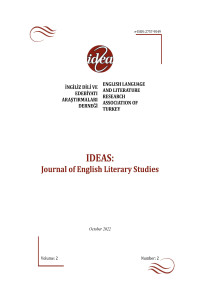Abstract
References
- Badiou, Alain. Saint Paul: The Foundaiton of Universalism. Trans. Ray Brassier. Stanford: Stanford University Press, 2003.
Re-Creation of the Character and Subjectivation in The Curious Incident of the Dog in the Night-Time
Abstract
The play, which is an adaptation of Mark Haddon's successful novel The Curious Incident of the Dog in the Night-Time, premiered at the London National Theatre on August 2, 2012. Simon Stephens' adaption received seven Olivier Awards and relocated to London's Apollo Theatre in 2013. The production premiered in New York in 2014, and eight years later, it was staged at Sheffield Theatre Lyceum from February 15 to February 19, 2022. This paper focuses on the creation of subject (the protagonist Christopher) and identity in Simon Stephens’ play The Curious Incident of the Dog in the Night-time. The Curious Incident features vulnerability, dishonesty, different personalities, trust, experiences that go beyond the character's bounds and relationships between subjects and identities. This research focuses on Christopher's inability to comprehend and know himself; as a result, Christopher must learn to rewrite his existence and life in order to reveal his individuality and uncover himself. In opposition to the idea of living inside the confines of universally accepted rules, this study maintains that the play offers a different and autonomous definition of subjectivity which deconstructs accepted rules. This article, focusing on Alain Badiou's theory of subjectivation and his four forms in general, argues that The Curious Incident of the Dog in the Night-Time depicts a collective subject similar to Badiou's figure: a subject who rejects ordinary forms of communication for alternatives to authority and its structural inequalities.
References
- Badiou, Alain. Saint Paul: The Foundaiton of Universalism. Trans. Ray Brassier. Stanford: Stanford University Press, 2003.
Details
| Primary Language | English |
|---|---|
| Subjects | Applied Theatre |
| Journal Section | Research Articles |
| Authors | |
| Publication Date | October 31, 2022 |
| Submission Date | March 24, 2022 |
| Published in Issue | Year 2022 Volume: 2 Issue: 2 |
IDEAS: Journal of English Literary Studies is published by The English Language and Literature Research Association of Türkiye (IDEA).


